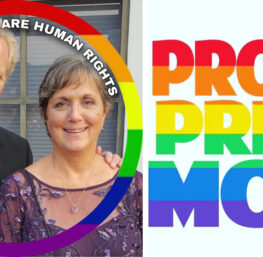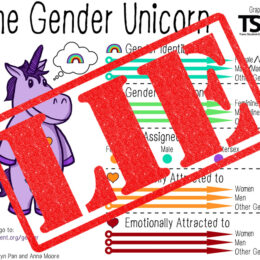 by Bruce Walker –
by Bruce Walker –
The recent Occupy Wall Street ruckus and the drumbeat rhetoric of Democrats in Washington that the rich pay too little shows the dangers of placing power in the hands of those who have no real interest beyond self-interest in the governance of the nation. One rallying cry of our forefathers when the British Crown sought to impose taxes — really, very modest taxes — on the colonies without the consent of us colonials was “No taxation without representation!”
The logic of that slogan ran something like this: if I have no say in who passes taxes that I must pay, then what prevents the officials from imposing unfair taxes on me? On the other hand, if both the burden of taxation and the voice in tax-making are roughly equal, then taxes passed will be just and sensible.
Commonly shared burdens undertaken granted in exchange for commonly held rights was viewed as a complementary and self-regulating system. This was not true just for taxation. Because government ultimately rests upon the sanctioned use of force, both against external threats and against internal rebellions, government in America was originally founded upon two vital elements: state militia and the posse. Healthy males capable of bearing arms were expected and required to take up arms in defense of public safety and national defense.
Conscription remained, on and off, a part of American life until the volunteer army was created at the end of the Vietnam War. The posse, which has been romanticized or reviled — depending upon one’s ideological view of American justice — was simply a recognized duty that those who voted had to enforce the laws their elected representatives enacted.
Juries, too, were both a duty and a right before the twin evils of ACLU-inspired jury deformation to conform to sort macabre creature of “social justice” and the burden of jury duty becoming too inconvenient for the bulk of couch-potato Americans. The jury was intended to be disinterested in anything but justice, because any of us could be the defendant in a civil or criminal action, too. “There, but for the Grace of God, go I” was the maxim that bound juries to individual justice and to solemn civic duty.
In the perversion of modern politics, voting has been transformed from a right into a duty. It is hard to imagine anything sillier. Totalitarian nations force slaves to vote as a way of acknowledging the rights of their masters to rule. The last thing anyone interested in good government should want is voters who seek their own selfish interests above the interests of all citizens, to say nothing of the genuinely ignorant and indifferent voting. The purpose of voting is to provide in this worst form of government (except for all the rest) a way to keep favoritism in government pushed to the farthest borders of democratic process.
Because money — tax dollars — is the easiest thing to steal in politics, it is especially important that no one be allowed to enact a tax unless he can vote. There are exceptions to that, of course. Teenagers pay sales taxes and income taxes, even though they cannot vote. Some states bar convicted felons or judicially determined madmen from voting, but overwhelmingly, the right to vote has been accepted as almost universal.
The duty to pay taxes — the obligation to put earning into the revenue pot before one can vote on how it is used — has vanished in America. The sorts of taxes which once made up the bulk of federal revenue were transactional and proportional. This did not mean that the wealthy did not still pay a larger share of the tax burden than the poor, but it meant that the relative burden on all Americans was about the same. One consequence of that was that all Americans had a more or less equal interest in prudent spending, fiscal solvency, and honest appropriations. Taxation was linked to representation in the same way that representation was linked to taxation.
What we have today is something horribly different. An implicit acceptance of Marxist dogma infests political thinking. The rich are rich on the backs of the poor, this reasoning goes, so the poor have the right, essentially, to expropriate the money of the rich by use of greater voting power. Politicians, of course, luxuriate in this foul myth; it lets them buy votes and to pay for those votes with the money of producers.
Honesty would require, instead, that the unproductive pay the productive — that is, that the ones who sweat and prosper be given money by those who sloth and panhandle. Men like Andrew Carnegie, Sam Walton, and Howard Hughes created far more wealth in America than they would ever consume. Historical foundations of American government, however, do not see the wisdom in or the need for that redistribution of wealth from consumers to creators.
In much the same spirit, the property qualifications of voting have been progressively evaporated in American states to the point that even modest property barriers to voting have now been banished. Even a head tax, or “Poll Tax,” to insure that voters have at least some general, rather than selfish, interest in how tax monies are spent, has been constitutionally banned.
Paying taxes, like serving in a posse or a militia or serving on a jury, has been a minimal required duty for the right to participate in our representative democracy. Simply being bound by our laws, or worse, “serving” our government by being a politician or voting in elections, takes a right and mystically transforms that right into a duty.
The only solution to our current political woes is to connect the right to vote with a duty to pay taxes. Voting other people’s money into your own pocket is not just bad government; it is a sin. It is stealing, and it is coveting. What we see in the ugly surrealism of Occupy Wall Street and sibling demons is not so much dumb, destructive politics as the glorification of wicked intent, and that is intolerable.
HT: American Thinker



I do not know if you saw what happened here in Melbourne ,Victoria,Australia regarding the Police force removing the Occupy Melblourne demonstrators. The demonstrators sat down and blocked trams from operating and told the media, when asked about why they are holding up people wanting to work,they did not care about that .Thus selfishness ruled. Secondly ,there were a lot of groups making a statement,a leaderless rabble.
The police were accused of being heavy handed-i do not know if it made news in the USA- and there is now talk of legal action by those removed by force. The police were called in by the Lord Mayor,after a Council officer read an order to the demonstrators to vacate a public place. WE only have one Police force in each State thus local government officers and police have a good working relationship.
The demonstrators have subsided quite a bit now-perhaps gone home to have a shower or a bath. But what we saw was utter selfishness,disregard for public order and the rule of law. It reminded me that in the last days lawlessness will abound. This was perhaps a preview